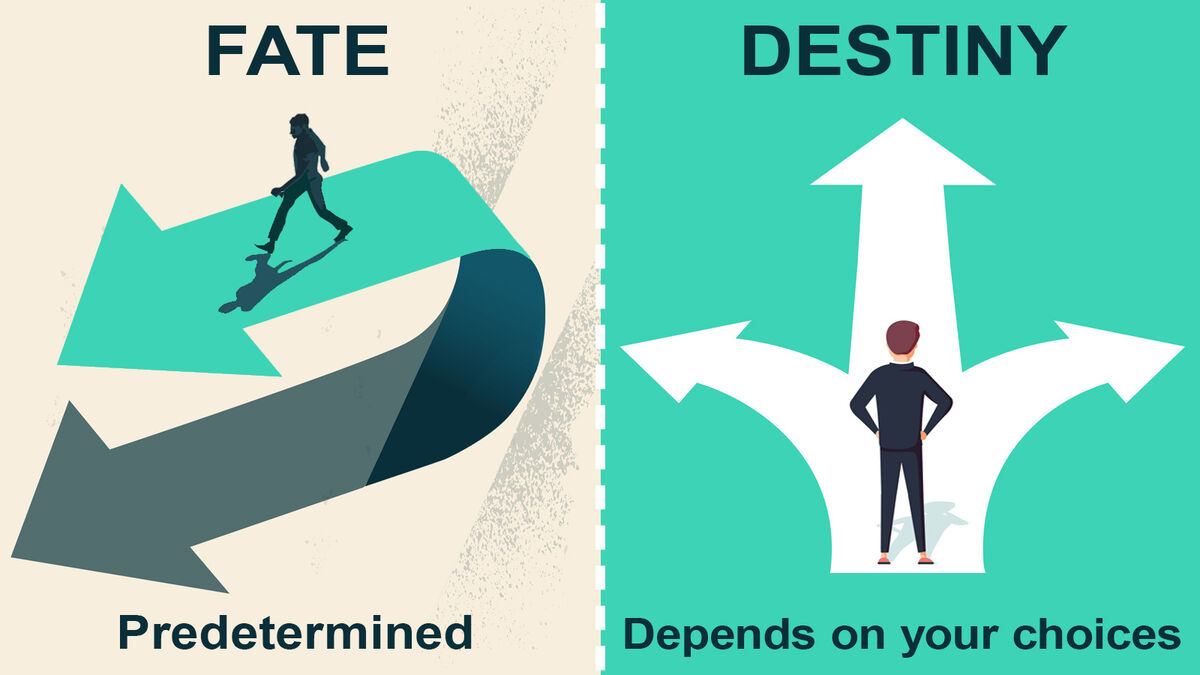In the tapestry of human beliefs and philosophies, faith and destiny stand as distinct yet intertwined concepts, each offering unique perspectives on the nature of existence and purpose. While both concepts touch upon the mysteries of life, they diverge in their essence, scope, and implications. Let’s explore the fundamental differences between faith and destiny to gain a deeper understanding of these profound concepts.
Faith: The Power of Belief and Trust
Faith is a deeply personal and often spiritual concept rooted in belief, trust, and conviction. It encompasses the profound assurance that something exists or will happen, even in the absence of tangible evidence or empirical proof. Faith transcends rational understanding, operating in the realm of intuition, emotion, and spirituality. It is characterized by:
- Belief Without Proof: Faith involves trusting in something beyond tangible evidence or logical reasoning. It is a deeply held conviction that goes beyond empirical validation.
- Subjectivity: Faith is highly subjective and varies from individual to individual. What one person has faith in may differ significantly from another’s beliefs.
- Spiritual and Personal Dimensions: While faith is often associated with religious beliefs, it can extend to trust in oneself, others, or the universe. It serves as a guiding force in navigating life’s uncertainties and challenges.
- Influence on Actions: Faith often motivates actions and decisions. Individuals may act in alignment with their beliefs, guided by the assurance that their chosen path is meaningful and purposeful.
Destiny: The Unfolding of Predetermined Events
Destiny, on the other hand, pertains to the predetermined course of events or the ultimate outcome of one’s life. It implies that certain events or circumstances are inevitable and are part of a larger, predetermined plan or design. Destiny operates on the premise that there is a fixed trajectory or path laid out for each individual, independent of their will or actions. It is characterized by:
- Predetermination: Destiny suggests that certain events, outcomes, or experiences are preordained and bound to occur. It implies a sense of inevitability in the unfolding of one’s life journey.
- External Influence: Unlike faith, which often involves personal beliefs and convictions, destiny is commonly viewed as an external force or cosmic design shaping the course of events independently of individual control.
- Fateful Events: Events or encounters considered fateful or meant to be are often attributed to destiny. These moments are seen as crucial points in the overarching plan or narrative of one’s life.
- Mystical Connotations: Destiny can carry mystical or metaphysical connotations, suggesting a cosmic order or higher power governing the lives of individuals and the universe at large.
Distinguishing Between Faith and Destiny
While both faith and destiny touch upon themes of belief, trust, and the mysteries of life, the key distinction lies in their nature, scope, and implications:
- Origin: Faith originates from personal beliefs, intuition, and spiritual convictions, whereas destiny is often perceived as a predetermined plan or cosmic order beyond individual control.
- Control: Faith empowers individuals to make choices and take actions based on their beliefs and convictions, while destiny implies a sense of predestination and inevitability in the unfolding of events.
- Flexibility: Faith is subjective and can evolve over time, influenced by personal experiences and beliefs. In contrast, destiny is commonly seen as fixed and unchangeable, shaping the trajectory of one’s life regardless of individual will.
- Scope: Faith encompasses a wide range of beliefs and convictions, including religious faith, trust in oneself, or belief in the inherent goodness of humanity. Destiny, on the other hand, pertains specifically to the predetermined course of events in one’s life journey.
Conclusion
In summary, faith and destiny represent two distinct yet interconnected aspects of the human experience, offering complementary perspectives on the mysteries of existence and the nature of reality. While faith empowers individuals to trust in something greater than themselves and guide their actions accordingly, destiny suggests a predetermined plan or order shaping the course of events in the grand tapestry of life. Understanding the differences between faith and destiny allows us to navigate the complexities of our personal beliefs and philosophies, fostering a deeper appreciation for the profound mysteries that shape our existence

Leave a Reply